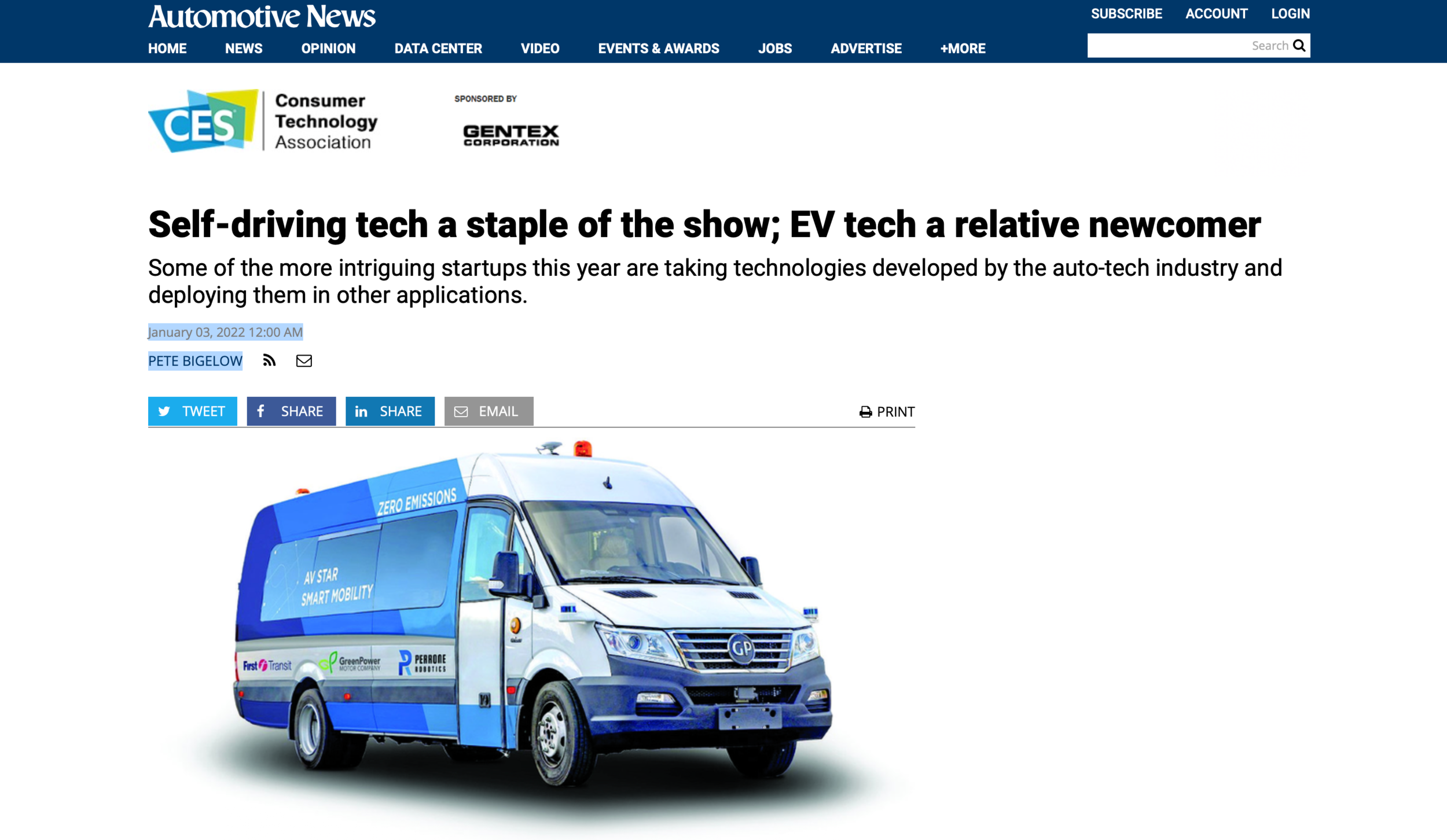Automotive News — Self-driving tech a staple of the show; EV tech a relative newcomer
Some of the more intriguing startups this year are taking technologies developed by the auto-tech industry and deploying them in other applications.
January 03, 2022 12:00 AM - PETE BIGELOW
There's no shortage of transportation-related headliners for CES.
General Motors CEO Mary Barra is set to deliver a virtual keynote address during the event. Event organizers added U.S. Transportation Secretary Pete Buttigieg to the list of speakers in mid-December.
More than 2,100 companies were slated to exhibit in person at this year's Las Vegas technology showcase, with many of them emerging in the autonomous and electric vehicle realms. From pragmatic driver-monitoring systems to fanciful flying cars, advanced technology will be well represented.
While we don't yet know what each will display — it's always good to leave some surprises for the actual show, after all — here's a look at five intriguing startups worth keeping an eye on during CES and beyond.
Avikus
Focused on building autonomous navigation technology, Avikus is expected to showcase an automated system, equipped with cameras and lidar, that can help ships navigate tight canals and dock. The company anticipates commercializing "self-sailing" leisure boats in 2022 and plans to conduct a transoceanic voyage via autonomous navigation aboard a large merchant ship.
Avikus, a subsidiary of Hyundai Heavy Industries, was established in December 2020 and perhaps is representative of increased efforts to utilize automated-navigation technology across transportation modes. In late November, General Motors acquired a 25 percent stake in all-electric boat maker Pure Watercraft, perhaps a parallel example of auto tech cross-pollinating into an adjacent industry.
There were no plans for Avikus to demonstrate its technology during CES at nearby Lake Mead, but as of mid-December, the company was planning to have a boat for seafaring convention-goers to check out in West Hall of the Las Vegas Convention Center.
Seoul Robotics
The number of lidar companies in particular and sensor companies overall vying for attention at CES is in the dozens. One worth watching may be Seoul Robotics, a computer-vision software provider that already works with the likes of BMW and Volvo.
In December, the company launched its latest iteration of a lidar perception system that functions as an all-in-one development kit geared toward helping transportation departments and cities utilize lidar in traffic infrastructure.
Seoul Robotics is using CES to demonstrate another use case, showcasing how infrastructure-based lidar can be used to maneuver vehicles via a 5G connection, simulating a factory floor. Along those lines, the company hints that it will further discuss a collaboration with a "major automotive OEM" on automating the movement of "thousands of vehicles and trucks" in such an environment.
Perrone Robotics
Sixteen years ago, company founder Paul Perrone led Team Jefferson into the 2005 DARPA Challenge, one of the three autonomous racing events which proved formative for the autonomous-driving industry. Now he's back in Nevada with the AV Star self-driving shuttle.
It may not drive across rocky desert terrain, but that may be its only shortcoming. Perrone Robotics bills the AV Star as the nation's first "fully autonomous, zero-emission, all-electric, ADA-compliant, FMVSS-certified and Buy America" shuttle.
The ADA-compliant aspect of the shuttle should not be underappreciated. There has been greater scrutiny on industry claims of providing accessibility and independence to disabled communities.
Actually delivering on such promises can be a differentiator, which makes Perrone worth checking out during CES.
Voltaiq
Battery advances have underpinned the influx of EVs sweeping across the auto industry. But engineers are in the early going in figuring out how to monitor battery health and gain meaningful insights from how batteries actually hold up in the real world.
Enter Voltaiq, a Berkeley, Calif.-based company founded in 2012 that's gaining fresh relevance as the EV market develops. Its software can collect more than 80 metrics from batteries on their origins, chemistries and ongoing performance so that automakers can gain intelligence and predict the performance of the batteries and their systems.
Voltaiq says it's working with Mercedes-Benz and two Detroit automakers, in addition to the likes of Amazon, Google and Microsoft.
Monarch Tractor
Finally, we'd be remiss to overlook some of the agriculture-tech companies taking part in CES this year. Forget looking into the future for applications of autonomous-driving technology; they've been used in agriculture for years.
Monarch Tractor spun out of Motivo Engineering in 2019, and it is showcasing a fully electric, driver-optional connected tractor that has already claimed a CES 2022 Innovation Award. Unlike some of the other vehicles in the ag-minded AV space, Monarch's tractor can be used in farming for a variety of crops, and its swappable battery enables consecutive run times of 10 hours or more.
Tesla and Zoox alum Mark Schwager is the company's president.
###

